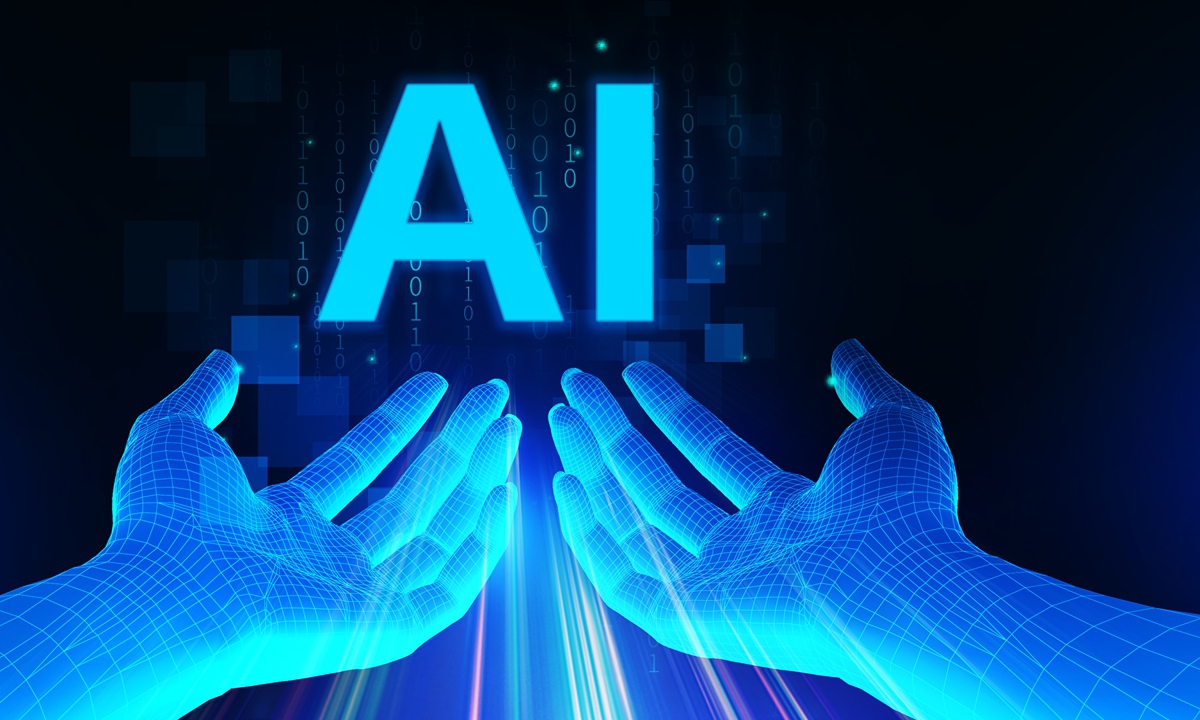
AI Photo: VCG
China is striving to regulate generative artificial intelligence (AI) while promoting innovation and technological progress, in a bid to balance development and security.
A key reform resolution unveiled in July noted that the country will strengthen cybersecurity and institute oversight systems to ensure the security of AI. Improving the mechanism for developing and managing generative AI is another area that's being stressed.
Cyberspace Administration of China, China's top internet regulator, emphasized the importance of the favorable and orderly development of AI-related technologies and applications, as part of a broader push to prioritize the coordination of high-quality development and high-level security of AI.
Such efforts are in line with the focus of China's development blueprint in a key meeting that concluded in July.
Experts noted that as the generative AI frenzy continues to rise in China and worldwide, the importance of security in the development of AI models cannot be underestimated.
China will continue to balance high-quality development and security, and promote industrial development, technological progress and security in the field of generative AI, Zhuang Rongwen, director of the Cyberspace Administration of China, the agency in charge of generative AI regulation, said during an interview with the Xinhua News Agency published on Monday.
"We need to resolutely safeguard the baseline of preventing risks of the abuse of generative AI, and making sure it is reliable and manageable," Zhuang said.
The importance of security has increased, given the expansion of innovative AI services in China in recent years.
More than 190 generative AI service models have been registered in China and made available for public use, with the number of registered users of these models having exceeded 600 million, said Zhuang.
Generative AI service models utilize generative AI technologies to produce content like text, images, audio and video for public consumption.
Zhuang noted that Chinese AI companies should provide high-quality services to users while also ensuring legal compliance and preventing risks such as data breaches, false information and intellectual property violations caused by the misuse of AI technology.
"To develop more competitive and user-friendly generative AI products, we focus on privacy compliance to prevent the inclusion of false or incorrect information in our language training models," Liu Hua, a vice president of Shanghai-based AI start-up MiniMax, told the Global Times on Tuesday.
MiniMax prioritizes information transparency and interpretability to reduce the risk of misuse of personal data and safeguard user privacy, said Liu.
Zhuang called for more efforts to enhance security measures and promote collaborative governance to establish a positive ecosystem for the development of AI.
China has made efforts to establish and advance a security mechanism for generative AI technologies and services, officials said.
In July 2023, China issued provisional management rules for generative AI services, the first in the world. The announcement outlined stringent regulations on the use of algorithms, deepfake technology and AI-generated content.
In a recent move, the National Information Security Standardization Technical Committee on May 23 released draft regulations outlining security measures for generative AI services, covering areas such as securing training data and protecting AI models.
Experts said that China's proactive stance in implementing AI-related regulations showcased the country's commitment to and support for the advancement of AI technology and shaping the worldwide landscape of AI regulatory frameworks.
With AI technologies picking up steam, making progress in a disciplined way and maintaining security are shared concerns, Tian Feng, dean of the SenseTime Intelligence Industry Research Institute, told the Global Times on Tuesday.
"More regulatory measures become necessary, which is crucial in fostering responsible AI development while encouraging innovation," Tian said.
Global and domestic AI companies are investing heavily in the research and development of security technologies. Analysts pointed out that the industry shares a consensus that the growth of generative AI models requires equivalent security capabilities.




